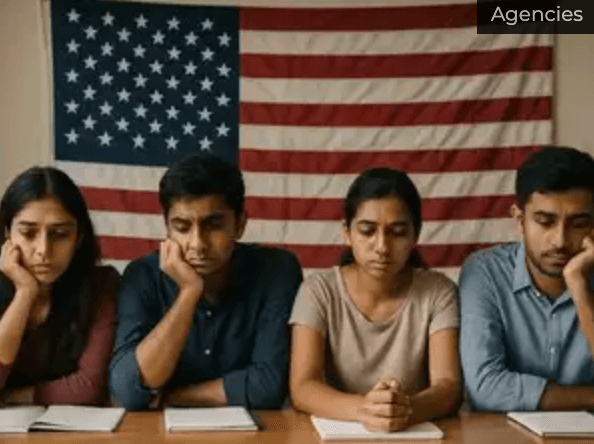Introduction
A proposed U.S. bill, the Secure Borders Act of 2024, has triggered alarm among Indian students and academic institutions by threatening to curtail critical work visa programs. Over 300,000 Indian students in the U.S. face uncertainty as the legislation targets the Optional Practical Training (OPT) and H-1B visa routes, key pathways for post-graduate employment. This move risks disrupting career plans, straining bilateral relations, and impacting the U.S. economy, which relies heavily on international talent.

Understanding the Secure Borders Act of 2024
The bill, introduced to prioritize domestic workforce opportunities, proposes stringent restrictions on the OPT program—which allows international students to work for up to three years post-graduation—and the H-1B visa system, a primary route for skilled foreign workers. Key changes include:
- OPT Program Overhaul: Elimination of the STEM extension, reducing work eligibility from 36 months to 12.
- H-1B Modifications: Higher salary thresholds, prioritization of U.S. advanced-degree holders, and stricter quotas.
- Increased Scrutiny: Additional documentation requirements for employers sponsoring visas.
Implications for Indian Students
India accounts for nearly 25% of all international students in the U.S., with over 200,000 enrolling annually. The OPT and H-1B pathways are pivotal for securing employment in sectors like tech, engineering, and healthcare. If enacted, the bill could:
- Limit Career Opportunities: Students may lose the ability to gain U.S. work experience, diminishing ROI on expensive education.
- Force Relocation: Many may opt for countries like Canada, Australia, or the UK, which offer streamlined post-study work permits.
- Create Financial Strain: Universities dependent on international tuition fees (up to $9 billion annually from Indian students) may face revenue losses.
Reactions from Stakeholders
- Student Outcry: “This bill shatters years of planning,” says Priya Mehta, an MBA student in Texas. “I may have to return home despite job offers.”
- Diplomatic Tensions: The Indian government has expressed “deep concern,” hinting at potential retaliatory measures affecting trade and tech collaborations.
- Corporate Pushback: Major tech firms, reliant on H-1B talent, warn of innovation slowdowns. The U.S. Chamber of Commerce calls the bill “economically shortsighted.”
- Academic Concerns: Universities fear declining enrollments; MIT and Stanford have lobbied lawmakers to protect OPT.
Economic and Diplomatic Fallout
The U.S. risks losing its edge in global talent acquisition, particularly in STEM fields where Indian students dominate. Meanwhile, India’s burgeoning tech sector could benefit from returning professionals. However, diplomatic friction may arise, especially if India imposes restrictions on U.S. companies or educational partnerships.
What’s Next?
The bill is under Senate review, with heated debates expected. Amendments to protect STEM students or raise H-1B caps are possible. Experts advise students to:
- Monitor legislative updates via official channels like the U.S. Citizenship and Immigration Services (USCIS).
- Explore alternative destinations with favorable immigration policies.
- Consult university advisors and immigration attorneys for contingency planning.
Conclusion
The Secure Borders Act of 2024 has ignited a firestorm of anxiety among Indian students and reshaped discussions on global talent mobility. While the bill’s fate remains uncertain, its ripple effects underscore the interconnectedness of education, immigration, and economic policy. Stakeholders urge a balanced approach that safeguards both domestic interests and America’s legacy as a hub for innovation.
Pingback: Title: U.S. Bond Selloff Sparks Fears of a COVID-Style Liqu.